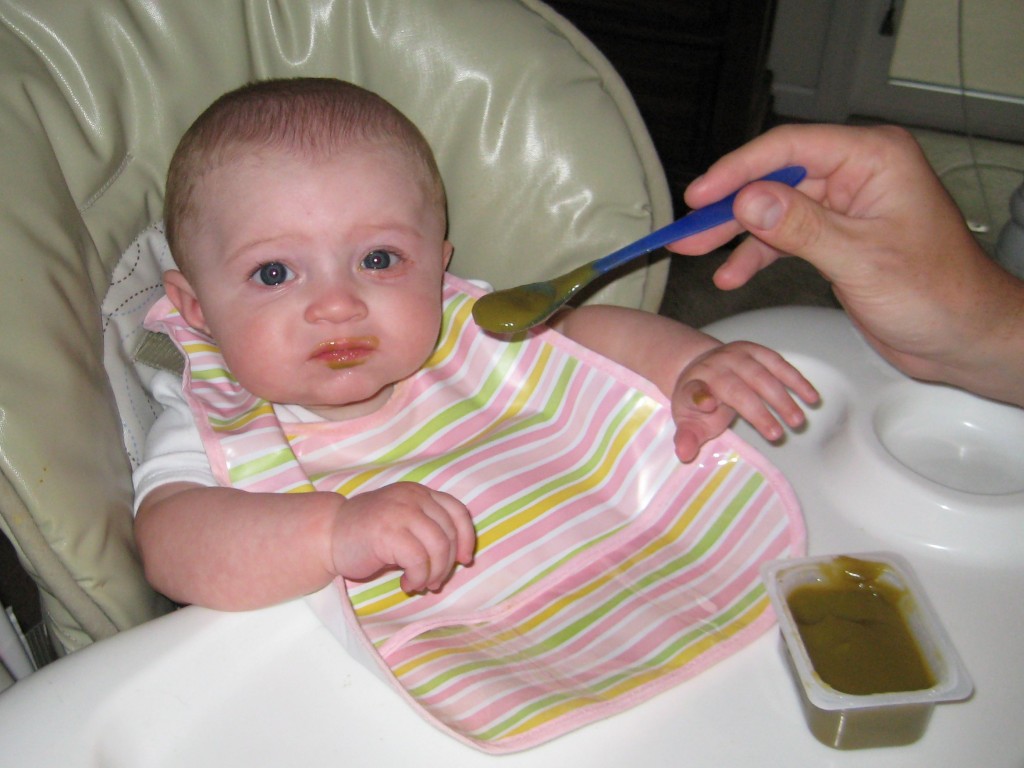Phoebe has clearly inherited her appetite from me. And her sweet tooth. And it may be too early to tell for definite yet, but possibly her podgy hips and ass as well. What can I say, I’m a giver?

Whenever the word food is mentioned, we often recall our favourite dish which makes our mouths to salivate. Food is essential to the growth and development of our body systems. It is a source of energy, in addition to boosting our immune system. Taking into account the importance of food in our lives and the fact that most of us usually have a minimum of three meals a day, it is an essential need that we can’t afford to ignore.
A newly born baby is a bundle of joy, he or she cries and even laughs gracefully. Most importantly we as parents have come to learn to respond to their cries, knowing when they are hungry. Just as food is important to us adults, it is vital for the baby. Why is this so?

a) The lifecycle development– Infancy-Childhood is the initial and most critical postnatal stage of development. Every baby needs nutrients which are acquired from food. Any deficiency of particular nutrients could easily lead to immune system deficiencies which might pose a potential risk to the baby’s health for the rest of their lives.
b) Baby’s digestive system– a baby’s digestive system is more efficient than that of an adult. Nutrients are absorbed faster into the body as the baby needs those nutrients for development.
c) Baby’s body organs – infancy is a critical stage in the development of the baby’s body organs. The kidneys, the brain and other organs are not yet fully before birth and usually develop fully during infancy.
d) The baby’s appetite– did you that babies and children in general, consume more food on pound-for-pound basis than adults? Due to this, they are exposed to more different types of foods and chemical substances contained in those particular foods. As a result, this pose a greater potential risk to the health and development of the baby.

Organic food is vital for the development of the baby as it provides nutrients that are found naturally in the environment; unlike the modified and some synthetically processed foods. Here are some of the benefits of organic foods:
i. Higher nutritional levels– organic food has much higher nutritional benefits unlike the processed and synthetically produced foods. A combination of different types of organic foods provide essential nutritional benefits including proteins, fibres and carbohydrates which are vital for the baby’s growth.
ii. Organic Farming– a major concern when it comes to organic foods is its source. Organic farming entails growing of different crops naturally with minimal use of pesticides and chemically synthesized fertilizers.
Such chemicals when used in large volumes pose a great potential risk to our health. This is more so when you consider the numerous types available for different crops. Chances are that we consume cocktails of these chemicals unknowingly which might cause potential health risk to the baby as their kidneys aren’t yet fully formed meaning that these chemical substances will circulate their body for a longer period of time.
iii. No additives– additives such as monosodium glutamate, aspartame, brilliant blue, and quinolone yellow have a more potent effect on nerve cells than each on its own. The beauty with organic food is that it contains no additives.
iv. Going ‘Organic’– this greatly benefits the environment as the process of growing crops naturally doesn’t interfere the natural environment. As a matter of fact, it works together maintaining the ecological balance.